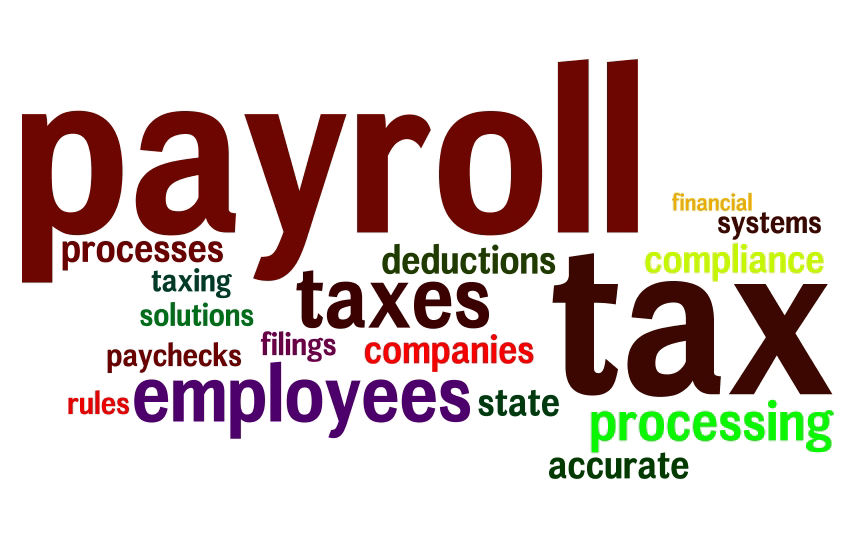The Role of Payroll Tax Deductions in Employee Benefits and Withholdings

Understanding the impact of Payroll Tax Deductions on employee repayment and blessings control.
Payroll tax deductions play an important function in the management of employee advantages and withholdings, shaping how organizations take care of reimbursement and ensuring compliance with tax legal guidelines. These deductions have an effect on now not handiest the take-home pay of personnel however additionally have an effect on the overall benefits shape that employers provide. Understanding the diverse components of payroll tax deductions is crucial for both employers and personnel to optimize financial making plans and comply with regulatory necessities.
1. What Are Payroll Tax Deductions?
Payroll tax deductions seek advice from amounts withheld from an employee’s gross earnings to cowl taxes mandated with the aid of federal, kingdom, and neighborhood governments. These deductions consist of Social Security tax, Medicare tax, federal profits tax, and once in a whole state and nearby earnings taxes. In addition to taxes, certain voluntary deductions together with retirement plan contributions or medical health insurance premiums also can be a part of payroll deductions. The time period payroll tax withholdings regularly encompasses a lot of these factors deducted from a worker’s paycheck.
2. Payroll Tax Deductions and Employee Benefits
Employee advantages are a big part of overall reimbursement, and payroll tax deductions can directly have an effect on the fee personnel get hold of from these benefits. For example, many advantages like health insurance rates, retirement contributions, or bendy spending bills are deducted pre-tax, reducing taxable profits and potentially lowering universal tax legal responsibility. Understanding payroll tax implications for these benefits helps employees maximize their take-domestic pay at the same time as playing vital benefits.

3. The Legal Framework Governing Payroll Tax Deductions
The IRS and other tax authorities modify payroll tax deductions stringently. Employers need to observe laws along with the Federal Insurance Contributions Act (FICA), which mandates Social Security and Medicare taxes, and the Federal Income Tax Withholding necessities. Failure to conform with these policies can result in penalties. Therefore, companies regularly depend on payroll systems designed to calculate and withhold appropriate taxes robotically, ensuring compliance with payroll tax withholding regulations.
4. Social Security and Medicare Deductions
Among payroll tax deductions, Social Security and Medicare taxes are the most universally relevant. Social Security tax is generally withheld at 6.2% from personnel and coupled equally with the aid of employers, even as Medicare tax is withheld at 1.45% with a further 0.Nine% surtax for higher incomes. These taxes fund vital federal applications and represent an obligatory withholding that employees have to recognize. The correct application of these deductions falls beneath the wider subject matter of FICA tax deductions.
5. Income Tax Withholding and Payroll
Federal profits tax withholding is primarily based on the information provided by employees on Form W-four. This shape determines the quantity of federal profits tax withheld from every paycheck. Employers need to correctly withhold and remit these taxes to the IRS on behalf of their personnel. This withholding is an important aspect of payroll tax deductions, affecting employees’ annual tax liabilities and potential refunds. The phrase federal earnings tax payroll deductions is generally used to describe this technique.

6. Voluntary Deductions and Their Interaction with Taxes
In addition to mandatory payroll tax deductions, voluntary deductions can significantly impact an employee’s taxable income and advantages. Contributions to retirement plans like 401(k)s, health savings debts (HSAs), and flexible spending bills (FSAs) reduce taxable profits due to the fact they are frequently deducted pre-tax. These deductions have interaction with payroll tax policies to assist employees lower their tax burdens while saving for future desires or overlaying clinical charges. The time period pre-tax payroll deductions is regularly used when describing those advantages.
7. The Importance of Accurate Payroll Tax Withholdings
Accuracy in payroll tax withholdings is essential for each employer and personnel. Under-withholding can result in tax penalties for employees once they file their returns, whilst over-withholding decreases personnel’ instant coins flow. For employers, mistakes in withholding can lead to fines and audits. Therefore, effective payroll control and normal critiques of withholding allowances and deduction calculations are essential to keeping compliance and worker satisfaction. This vicinity is regularly referenced as payroll tax compliance and accuracy.
8. Payroll Tax Deductions and Employee Compensation Planning
Payroll tax deductions impact no longer the most effective modern paychecks but also long-term reimbursement planning. Employers designing repayment programs need to remember how payroll taxes have an effect on the net gain personnel obtain from revenue, bonuses, and benefits. By optimizing payroll deductions, groups can offer aggressive benefits at the same time as minimizing tax burdens on personnel. The idea of payroll tax planning often publishes those strategies to stabilise agency expenses and worker pride.
9. How Payroll Tax Deductions Affect Employee Take-Home Pay
The take-home pay, or internet pay, is what remains in any case payroll tax deductions and other withholdings are subtracted from a worker’s gross revenue. Understanding how those deductions impact internet pay allows employees to manage their price range better and make knowledgeable choices about voluntary deductions and advantages participation. Employers who educate their team of workers about payroll deductions regularly see higher employee engagement with benefits applications. This is closely tied to the idea of payroll tax and net pay calculations.

10. Conclusion
In the end, payroll tax deductions serve an essential function in handling worker blessings and withholdings. They ensure compliance with tax legal guidelines, facilitate employee participation in blessing packages, and affect take-domestic pay and general repayment pleasure. One critical factor of worker blessings related to payroll deductions is the 125 cafeteria plan benefits, which allow employees to use pre-tax bucks for various expenses which includes health insurance rates, based care, and scientific prices. These plans leverage payroll tax deductions to offer tax savings and decorate gain price, highlighting the strategic importance of knowledge payroll deductions within the broader context of worker compensation and benefits control.





